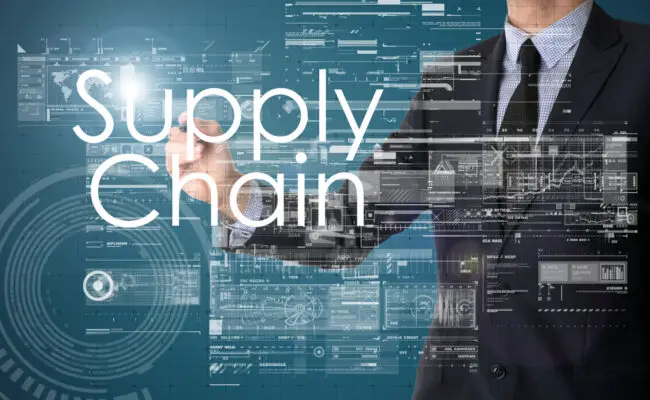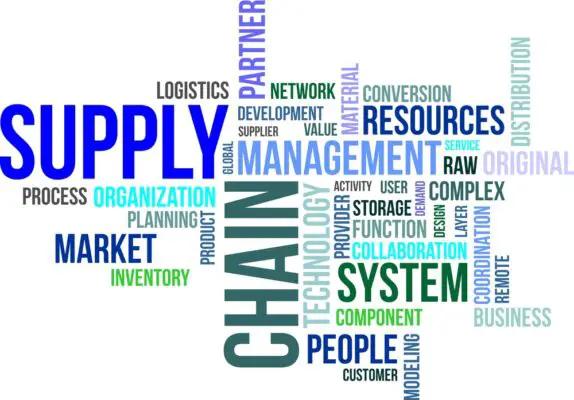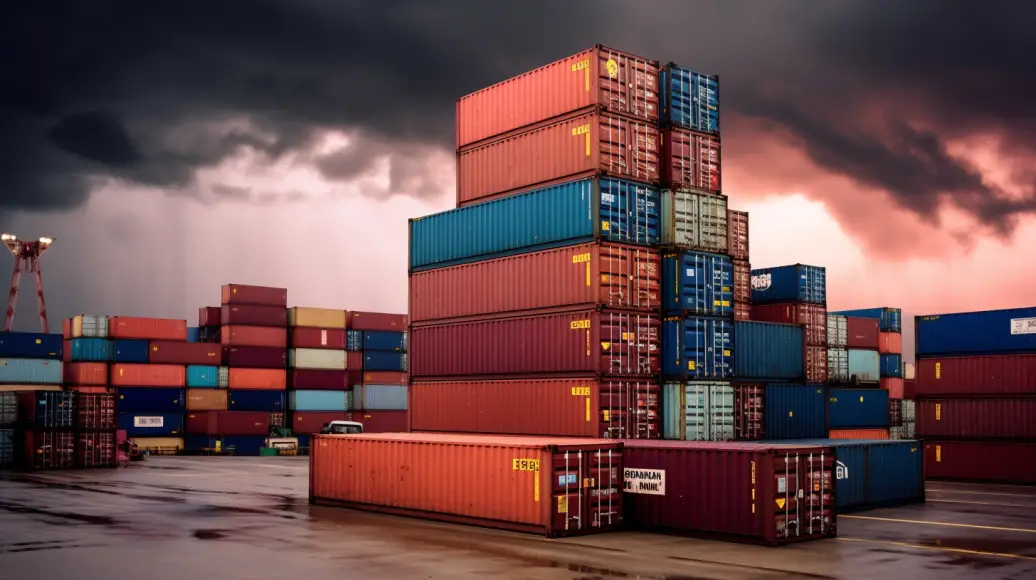The supply chain crisis has become a significant challenge for businesses worldwide, requiring them to maintain efficient and effective supply chains while navigating increased complexity and regulatory requirements.
The crisis is characterized by a lack of transparency and interconnectivity between data sources, making it difficult for supply chain managers to access relevant information across long and complex value chains.
As a result, businesses struggle to manage their supply chains, leading to significant consequences such as increased costs, reduced customer satisfaction, and decreased productivity.
The challenges of the supply chain crisis are multifaceted. One of the most significant challenges has been accessing relevant data across the supply chain. This challenge is further complicated by the regulatory requirements that demand stricter compliance in supply chain management.
Businesses are also grappling with the global interconnections that have made supply chains more complex and interconnected.
Fortunately, solutions like Trusted Traceability are emerging to provide greater transparency and interconnectivity between data sources, helping businesses navigate modern supply chains‘ complexities with greater ease and efficiency.
In this article, we will explore the causes and consequences of the supply chain crisis and examine the emerging solutions to address it.

Transparency Solutions
Trusted Traceability’s solutions for value and supply chain traceability address the increasing demand for transparency and traceability solutions, which has arisen due to stricter regulations and the need for quick and precise reactions to unexpected issues in the supply chain crisis.
Transparency solutions are essential in the current global supply chain crisis, where the COVID-19 pandemic has disrupted the supply chain, resulting in shortages of essential goods. The need for transparency and traceability solutions has become more critical than ever before.
Transparency solutions enable companies to track the movement of their products in the supply chain, from the raw materials to the end product. This allows for better visibility and control, helping to identify bottlenecks and inefficiencies in the supply chain, which can be addressed to ensure smooth operations.
Additionally, transparency solutions help to prevent fraud and counterfeit products from entering the supply chain.
Trusted Traceability’s value and supply chain traceability solutions include using blockchain technology, which provides a secure and transparent ledger of all transactions.
It ensures the data is accurate and tamper-proof, providing a complete and auditable supply chain record. Blockchain technology also enables real-time tracking of products, ensuring they are delivered on time and to the correct destination.
As such, transparency solutions provided by Trusted Traceability are critical in the current global supply chain crisis, enabling companies to manage their supply chain operations better and ensure the delivery of essential goods to customers.
Challenges in Data Access
One of the key obstacles to achieving transparency and traceability in long and complex value chains is the difficulty in accessing relevant data. The global supply chain and production are interconnected by various stakeholders who may not always share important information.
This creates a gap in the supply chain data that needs to be bridged for effective traceability solutions.
The challenges in data access can also arise from the lack of standardized data formats, interoperability between different systems, and the use of outdated technology. Moreover, the vast amounts of data generated by supply chains can be overwhelming, making it difficult to extract meaningful insights.
In such cases, there is a need for advanced data analytics tools that can process and analyze data efficiently.
Trusted Traceability provides a comprehensive solution that interlinks data securely to provide full data transparency. This includes using blockchain technology, which ensures that data cannot be tampered with or altered.
Using standardized data formats and ensuring interoperability between different systems, Trusted Traceability enables seamless data exchange across the supply chain. The table below summarizes the challenges in data access and the solutions provided by Trusted Traceability.
| Challenges in Data Access | Solutions Provided by Trusted Traceability |
|---|---|
| Difficulty in accessing relevant data | Interlinking data securely to provide full data transparency |
| Lack of standardized data formats | Use of standardized data formats |
| Lack of interoperability between different systems | Ensuring interoperability between different systems |
| Use of outdated technology | Use of advanced data analytics tools |
| Overwhelming amounts of data | Processing and analyzing data efficiently |
Regulatory Stricter Demands
Regulatory demands for greater transparency and traceability in industries have become increasingly stringent in recent years. This is particularly evident in the supply chain industry, where greater accountability and visibility are top priorities.
This heightened regulatory pressure is partly driven by concerns over counterfeiting, product safety, and sustainability, which require a more robust and transparent supply chain. The global nature of supply chains has made it increasingly difficult to monitor and manage them effectively.
This has led to a growing recognition of the need for greater transparency and traceability to ensure that products are sourced and produced ethically and sustainably. In response, regulators are ramping up their demands for more detailed and accurate information about supply chains, including data on suppliers, materials, and production processes.
This shift towards greater transparency and traceability is critical to building consumer trust and confidence in the products they purchase. While regulatory demands for greater transparency and traceability can be challenging for businesses to comply with, they also present new opportunities for innovation and growth.
Companies that can demonstrate a commitment to ethical and sustainable practices are increasingly sought after by consumers, investors, and regulators alike. Businesses can use robust supply chain management systems and processes to meet regulatory demands and gain a competitive advantage.
The shift towards greater transparency and traceability in supply chains is a positive development that is helping to build a more sustainable and responsible global economy.
Global Interconnections
The interconnected nature of global production and supply chains has heightened the need for greater transparency and traceability in industries as ethical and sustainable practices become increasingly important to consumers, investors, and regulators alike. This is particularly relevant in light of the supply chain crisis, exacerbated by the COVID-19 pandemic.
As supply chains have become more complex and globalized, disruptions in one part of the chain can have far-reaching consequences, leading to shortages, price hikes, and other challenges.
The crisis has highlighted the need for greater resilience and robustness in global supply chains and the importance of transparency and traceability in ensuring ethical and sustainable practices.
Companies that can provide greater visibility into their supply chains are better equipped to manage risks and respond to unexpected challenges. This is particularly important in industries such as food and pharmaceuticals, where safety and quality are paramount.
To address these challenges, companies are increasingly turning to technologies such as blockchain and IoT to provide greater transparency and traceability in their supply chains. These technologies enable companies to track products from raw materials to finished goods, providing detailed information on the origin, production process, and distribution channels.
Companies can build more resilient and sustainable supply chains while meeting consumers, investors, and regulators’ growing demand for transparency and traceability.

Trusted Traceability Solutions
Trusted Traceability Solutions offer a comprehensive approach to addressing the growing demand for transparency and traceability in global supply chains. It leverages technologies such as blockchain and IoT to provide detailed information on products’ origin, production process, and distribution channels.
These solutions enable businesses to track and trace product movements in real-time, enhance visibility across the supply chain, and mitigate risks associated with counterfeiting, fraud, and unethical practices.
Using Trusted Traceability Solutions, businesses can comply with regulatory requirements, improve customer trust, and enhance brand reputation.
One of the critical benefits of Trusted Traceability Solutions is their ability to interlink data securely and provide full data transparency across complex and long value chains. This is especially important in today’s globalized economy, where products can be sourced and manufactured across different regions, countries, and continents.
The lack of transparency in supply chains can lead to inefficiencies, delays, and disruptions, which can have severe consequences for businesses, consumers, and society.
Another advantage of Trusted Traceability Solutions is its ability to provide insights into the sustainability and social responsibility of supply chains. Using the origin and production process of products, businesses can assess the environmental impact of their activities, identify areas for improvement, and demonstrate their commitment to sustainability.
Similarly, by monitoring labour conditions and human rights violations, businesses can ensure that their supply chains are free from unethical practices and comply with international standards. In this way, Trusted Traceability Solutions can contribute to a more ethical, sustainable, and responsible global supply chain.
Frequently Asked Questions
What specific challenges do companies face when accessing relevant supply chain data?
Challenges accessing relevant supply chain data due to long and complex value chains. Trusted Traceability provides interlinked data for full transparency, meeting the increasing demand for traceability solutions.
How does Trusted Traceability interlink data securely to provide full data transparency in long and complex value chains?
It interlinks data securely to ensure full transparency in long and complex value chains. This solution provides interconnectivity between all nodes in the chain, allowing for easy tracking of goods and information flow.
What are some of the specific regulations driving the increasing demand for transparency and traceability solutions?
Stricter regulations and the need for quick and precise reactions to unexpected issues drive the demand for transparency and traceability solutions.
These regulations include the Food Safety Modernization Act, the European Union’s General Data Protection Regulation, and the Conflict Minerals Rule.
How do global interconnections impact the need for supply chain traceability solutions?
Global interconnections in supply chains increase the complexity and length of the value chain. This increases the need for traceability solutions to ensure transparency and accountability. Trusted Traceability provides solutions to address this issue.
What are some of the unique features and benefits of Trusted Traceability’s solutions for value and supply chain traceability?
Trusted Traceability offers solutions for value and supply chain traceability. Unique features include interlinking data securely to provide full transparency and address the increasing demand for traceability due to stricter regulations and unexpected issues.

Conclusion
The supply chain crisis is a major challenge facing businesses today as they struggle to maintain efficient and effective supply chains due to increased complexity and regulatory requirements.
Supply chain managers‘ biggest challenge is accessing relevant data across long and complex value chains. This has led to a lack of transparency and interconnectivity between data sources, making it difficult for businesses to navigate the complexities of modern supply chains with ease and efficiency.
Fortunately, solutions like Trusted Traceability are emerging to provide greater transparency and interconnectivity between data sources, helping businesses to address the challenges of the supply chain crisis.
Using these solutions, businesses can gain greater visibility into their supply chains, improve their operational efficiency, and better meet the demands of their customers.
Trusted Traceability is just one example of how businesses can overcome these challenges and thrive in today’s competitive marketplace.

Chris Ekai is a Risk Management expert with over 10 years of experience in the field. He has a Master’s(MSc) degree in Risk Management from University of Portsmouth and is a CPA and Finance professional. He currently works as a Content Manager at Risk Publishing, writing about Enterprise Risk Management, Business Continuity Management and Project Management.

